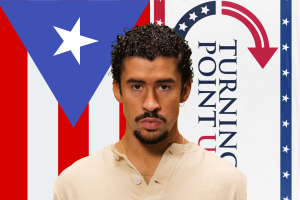Campaign Commentary: South Carolina is home of family support and voting restrictions
February 24, 2016
With the third presidential primary weeks away, the next stop for presidential hopefuls is South Carolina, where most have already started campaigning.
For Republicans, winning South Carolina may be crucial to achieving the position as party nominee. In fact, from 1980 to 2008, the Republican candidate that won South Carolina has gone on to become the party nominee for general convention.
There is likely to be a change in strategies from what has played out in Iowa and New Hampshire. In the South, candidates have begun to rely on familial support, which is a benefit for institutionalized candidates such as Jeb Bush and Hillary Clinton.
Bush, who recently temporarily suspended his campaign, had already started gathering support in South Carolina mainly with the help of his older brother, former President George W. Bush. Familial endorsement was a significant asset for Bush, who was polling at just 10 percent in South Carolina, compared with Donald Trump, who is leading at 38 percent.
It is likely that Clinton will call upon the help of her husband, former President Bill Clinton. Mr. Clinton not only held the position as governor of Arkansas before his term as president, but he also won South Carolina by a landslide in 1992 against other Democratic candidates.
While Mr. Clinton is certainly not the one running for president in 2016, his strong ties and popularity in the South may be an asset to his wife.
The latest polls from CNN show Clinton leading Bernie Sanders in South Carolina by over 10 percent.
Even so, for the Democrats, South Carolina will be about winning the “black vote,” as there is a substantial African American voting population.
South Carolina is also one of the Southern states that has strict voter identification laws. Voter IDs are usually harder to obtain for minority voters and may obstruct their voting power in South Carolina. Therefore, gaining minority votes there will be important to both Democrats and Republicans.
Voter ID laws would have been stricter in South Carolina had the Department of Justice not blocked them in 2011, claiming the law disproportionately affected people of color. The Department was under the suspicion that it was done for a discriminatory purpose given South Carolina’s history of voting and racial oppression.
With less severe voter ID laws passed later on, 82,000 registered voters in South Carolina do not have the proper form of ID required of the proposed laws. This is quite a substantial voter pool that could certainly have an effect on the primaries.
The South Carolina Republican presidential primary was Feb. 20, and the Democratic primary is Feb. 27.
Follow the campaign with correspondent Maggie Randall.







